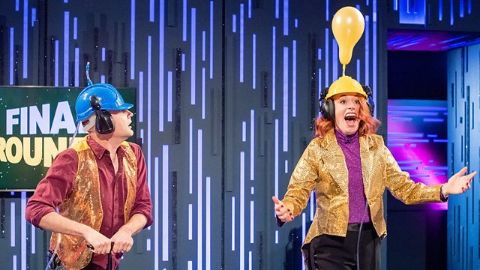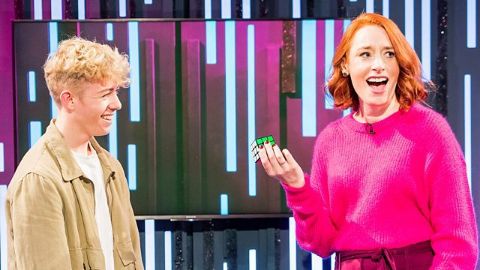How to Get Lucky • 2019 • episode "S1E1" • Royal Institution Christmas Lectures: Secrets and Lies - The Hidden Power of Maths
Kicking off the lectures with a mind-boggling stunt to prove how counterintuitive our gut instincts can be, Hannah launches into a lecture full of daring live experiments and surprising discoveries. From predicting the chance of snow at Christmas to dodging erupting volcanoes with Prof Chris Jackson, Hannah explores whether we really can predict the future. She meets the maths gurus behind Liverpool Football Club's winning streak to spill the beans on how analysing the numbers can give a team an edge in the Premier League, and reveals the tricks to perfecting your Christmas cracker pull to win the prize every time. Hannah also gathers tips from mind-performance coach Dr Michael Gervais, the 'secret weapon' crafting Olympic athletes' lucky mindsets, and the man responsible for Felix Baumgartner's jump from space, when 'first time lucky' meant life or death. Enrolling the help of maths comedian Matt Parker for the pinnacles of the lecture, the duo find order in unruly crowds, and whittle the audience down to the luckiest person in a series of challenges, before finally putting them to the test to prove whether they truly are one in a million. Using a host of maths tricks - from probability to game theory - Hannah discovers if we can in fact make our own luck, and ultimately shares the secrets to help us all lead luckier lives.
Make a donation
Buy a brother a hot coffee? Or a cold beer?
Hope you're finding these documentaries fascinating and eye-opening. It's just me, working hard behind the scenes to bring you this enriching content.
Running and maintaining a website like this takes time and resources. That's why I'm reaching out to you. If you appreciate what I do and would like to support my efforts, would you consider "buying me a coffee"?
Donation addresses
BTC: bc1q8ldskxh4x9qnddhcrgcun8rtvddeldm2a07r2v
ETH: 0x5CCAAA1afc5c5D814129d99277dDb5A979672116
With your donation through , you can show your appreciation and help me keep this project going. Every contribution, no matter how small, makes a significant impact. It goes directly towards covering server costs.






